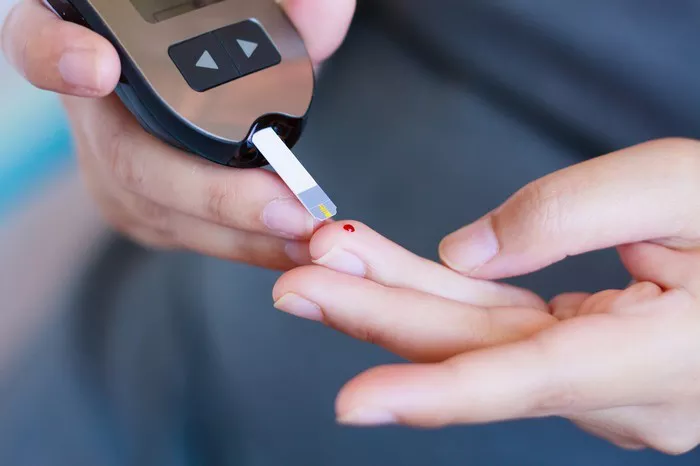Hyperglycemia, or elevated blood glucose levels, is a common condition in patients with diabetes and can lead to serious complications if not managed appropriately. Effective management of hyperglycemia involves a comprehensive approach that includes lifestyle modifications, medications, and monitoring strategies. This article provides an in-depth overview of the interventions and treatments used to manage hyperglycemia, focusing on the appropriate options for patients based on their specific needs and circumstances.
Understanding Hyperglycemia
Hyperglycemia occurs when blood glucose levels exceed normal ranges. In individuals with diabetes, hyperglycemia can result from insufficient insulin production, insulin resistance, or other factors that disrupt glucose regulation. The condition can be acute or chronic, with potential causes including:
Insufficient Insulin Production: The pancreas fails to produce enough insulin to meet the body’s needs.
Insulin Resistance: Cells do not respond effectively to insulin, leading to impaired glucose uptake.
Inadequate Medication: Insufficient or ineffective diabetes medication can contribute to elevated blood glucose levels.
Diet and Lifestyle Factors: Poor dietary choices, sedentary behavior, and stress can exacerbate hyperglycemia.
Symptoms of Hyperglycemia
Symptoms of hyperglycemia may include:
Increased Thirst: Excessive thirst due to fluid loss.
Frequent Urination: Increased urination as the body attempts to excrete excess glucose.
Fatigue: Persistent tiredness and lack of energy.
Blurred Vision: Vision changes due to fluid shifts in the eye.
Headaches: Headaches resulting from dehydration or high glucose levels.
Complications of Hyperglycemia
Chronic hyperglycemia can lead to severe complications, including:
Cardiovascular Disease: Increased risk of heart attack, stroke, and other cardiovascular conditions.
Neuropathy: Nerve damage leading to pain, tingling, or numbness, particularly in the extremities.
Nephropathy: Kidney damage that can progress to renal failure.
Retinopathy: Damage to the blood vessels in the eyes, potentially leading to vision loss.
Diabetic Ketoacidosis (DKA): A life-threatening condition characterized by severe insulin deficiency, elevated blood glucose, and ketone production.
Managing Hyperglycemia: Immediate Interventions
Immediate interventions are crucial for managing acute hyperglycemia and preventing complications. The choice of intervention depends on the severity of hyperglycemia, the underlying cause, and the patient’s overall health status.
1. Medications
Medications are a cornerstone of hyperglycemia management, especially for individuals with diabetes. Various classes of diabetes medications are used to control blood glucose levels:
Oral Hypoglycemic Agents
Metformin: Often the first-line medication for type 2 diabetes, metformin works by decreasing hepatic glucose production and improving insulin sensitivity.
Sulfonylureas: Such as glipizide and glyburide, these drugs stimulate insulin secretion from the pancreas.
DPP-4 Inhibitors: Drugs like sitagliptin and saxagliptin enhance insulin release and inhibit glucagon, a hormone that raises blood glucose levels.
SGLT2 Inhibitors: Medications such as empagliflozin and canagliflozin work by preventing glucose reabsorption in the kidneys, increasing glucose excretion in the urine.
Injectable Medications
Insulin: Essential for individuals with type 1 diabetes and often used in type 2 diabetes. Insulin therapy can be basal (long-acting) or bolus (short-acting) to manage blood glucose levels throughout the day.
GLP-1 Receptor Agonists: Drugs like liraglutide and exenatide mimic the effects of the GLP-1 hormone, which stimulates insulin release and suppresses appetite.
2. Insulin Therapy
Insulin therapy is crucial for managing hyperglycemia in individuals with type 1 diabetes and may be necessary for some individuals with type 2 diabetes. Insulin can be administered through injections or an insulin pump. Key considerations for insulin therapy include:
Dosing and Timing: Adjusting insulin doses based on blood glucose levels, meal timing, and physical activity.
Types of Insulin: Understanding the different types of insulin (rapid-acting, short-acting, intermediate-acting, long-acting) and their effects on blood glucose control.
3. Lifestyle Modifications
Lifestyle changes play a significant role in managing hyperglycemia. Key components of lifestyle management include:
Dietary Adjustments
Carbohydrate Management: Monitoring carbohydrate intake and choosing complex carbohydrates with a low glycemic index to maintain stable blood glucose levels.
Balanced Meals: Incorporating a balance of proteins, fats, and carbohydrates to prevent blood glucose spikes.
Meal Timing: Eating regular meals and snacks to maintain consistent blood glucose levels.
Physical Activity
Regular Exercise: Engaging in regular physical activity, such as walking, cycling, or strength training, to improve insulin sensitivity and lower blood glucose levels.
Monitoring Exercise Effects: Adjusting insulin and food intake based on the impact of exercise on blood glucose levels.
Stress Management
Stress Reduction Techniques: Practicing relaxation techniques, such as deep breathing, meditation, and mindfulness, to manage stress, which can affect blood glucose levels.
Sleep Quality: Ensuring adequate and restful sleep to support overall metabolic health.
4. Monitoring and Self-Care
Regular monitoring and self-care are essential for effective hyperglycemia management:
Blood Glucose Monitoring
Self-Monitoring: Using glucometers or continuous glucose monitors (CGMs) to track blood glucose levels and make informed decisions about medication, diet, and lifestyle.
Frequency of Monitoring: Monitoring blood glucose levels multiple times a day, especially during periods of illness, stress, or changes in routine.
Medical Check-ups
Regular Visits: Scheduling regular appointments with healthcare providers to assess blood glucose control, adjust treatment plans, and screen for complications.
A1C Testing: Periodic hemoglobin A1C tests to evaluate long-term blood glucose control and make necessary adjustments to the treatment plan.
5. Education and Support
Education and support are vital for empowering patients to manage hyperglycemia effectively:
Diabetes Education
Understanding Diabetes: Providing education on the nature of diabetes, its impact on blood glucose levels, and the importance of adherence to treatment plans.
Skill Development: Teaching patients how to use diabetes management tools, such as glucometers, insulin pumps, and glucose monitoring systems.
Support Networks
Support Groups: Encouraging participation in diabetes support groups or counseling services to share experiences and receive emotional support.
Family Involvement: Engaging family members in the management process to provide additional support and encouragement.
Special Considerations
Certain patient populations may require additional considerations in the management of hyperglycemia:
1. Pediatric Patients
Managing hyperglycemia in children and adolescents involves unique challenges, including:
Dosing Adjustments: Tailoring insulin doses and medications to the child’s age, weight, and activity level.
Growth and Development: Monitoring the impact of diabetes management on growth and development.
Education for Caregivers: Providing education and support for parents and caregivers to manage diabetes effectively.
2. Elderly Patients
Older adults may have specific needs related to hyperglycemia management, including:
Comorbidities: Managing diabetes alongside other chronic conditions, such as cardiovascular disease or kidney impairment.
Polypharmacy: Addressing potential interactions between diabetes medications and other prescribed drugs.
Cognitive Function: Considering cognitive function and potential challenges with diabetes self-management.
3. Pregnant Patients
Pregnant women with diabetes or gestational diabetes require careful management to ensure the health of both mother and baby:
Blood Glucose Control: Maintaining tight blood glucose control to prevent complications such as preeclampsia and fetal abnormalities.
Medication Adjustments: Adjusting diabetes medications and insulin doses based on pregnancy needs and changes in insulin sensitivity.
Regular Monitoring: Frequent monitoring of blood glucose levels and regular prenatal care visits.
See also: What Should I Drink If I Have Hyperglycemia?
Conclusion
Managing hyperglycemia requires a multifaceted approach that includes medications, lifestyle modifications, monitoring, and education. By addressing the underlying causes of elevated blood glucose levels and implementing appropriate interventions, healthcare providers can help patients achieve better glycemic control and reduce the risk of complications. Tailoring treatment plans to individual needs, considering special populations, and providing ongoing support and education are essential components of effective hyperglycemia management. Through a comprehensive and patient-centered approach, individuals with hyperglycemia can achieve improved health outcomes and enhanced quality of life.
Related topics:
How Is Hyperglycemia Treated Without Diabetes?

























